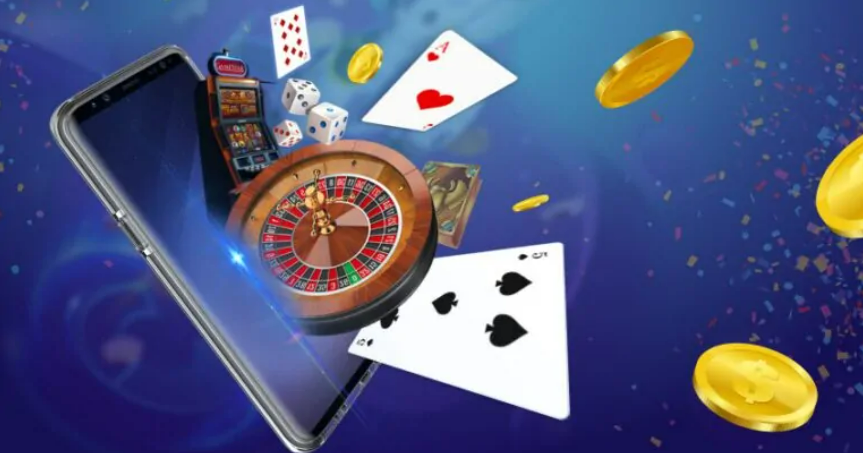How Blockchain is Changing Mobile 7

How Blockchain is Changing Mobile
Blockchain technology is rapidly transforming various industries, and mobile is no exception. As the mobile landscape continues to evolve, the integration of blockchain is bringing a wave of innovation that addresses some of the long-standing challenges faced by mobile developers and users alike. One notable organization pioneering this change is How Blockchain is Changing Mobile Casinos in Bangladesh https://www.eco3.org/es/, which uses blockchain to enhance user experiences in mobile applications. In this article, we will delve into the ways blockchain is reshaping mobile technology, its implications for security, payment systems, app development, and the wider ecosystem.
Enhancing Security and Privacy
Security is a paramount concern for mobile users, especially given the rampant increase in cyber threats and data breaches. Blockchain’s decentralized nature provides a higher level of security for mobile applications by eliminating single points of failure. Unlike traditional databases that are vulnerable to hacks, blockchain distributes data across a network of nodes, making unauthorized access significantly more difficult.
Additionally, blockchain technology empowers users with greater control over their personal data. With the implementation of decentralized identity solutions, users can manage their identities without relying on centralized platforms, ensuring that their information remains private and secure. This shift not only protects users but also builds trust between them and mobile application developers.
Revolutionizing Payment Systems
Mobile payments have gained tremendous popularity, but they often face issues such as high transaction fees, slow processing times, and security risks. Blockchain technology offers a solution by streamlining payment processes and reducing costs. Cryptocurrencies like Bitcoin and Ethereum enable instant and low-cost transactions, making them ideal for mobile commerce.
Moreover, blockchain enables the creation of smart contracts, which can automate transactions and enforce terms between parties without the need for intermediaries. This innovation can significantly reduce the risk of fraud and disputes in mobile transactions, offering users a safer and more efficient payment experience.

Decentralized Applications (DApps)
The rise of decentralized applications (DApps) is one of the most exciting developments brought forth by blockchain technology. Unlike traditional apps that operate on a centralized server, DApps run on a blockchain, providing users with increased control and transparency.
Developers can build DApps that are not only more resilient to downtime and censorship but also empower users to engage and interact in new ways. For instance, gaming DApps enable players to truly own their in-game assets, which are recorded on the blockchain. This ownership model represents a fundamental shift in how users participate in mobile ecosystems, fostering a more engaging and rewarding experience.
Tokenization and In-App Economies
Tokenization is another area where blockchain is making a significant impact on mobile applications. By creating digital tokens that represent assets or services, developers can establish new in-app economies. Tokens can be used for various purposes, such as rewards, loyalty programs, or even in-app purchases.
This approach encourages user engagement and retention while providing a unique revenue model for developers. Tokenized ecosystems enable seamless exchanges and incentivize behaviors that benefit both users and app creators. The result is a vibrant, dynamic environment that drives continuous innovation and user participation.
Streamlined App Development Processes
The app development process can be complex and time-consuming, often requiring significant resources for testing, deployment, and maintenance. Blockchain technology can simplify these processes through the use of decentralized services and protocols.

For instance, developers can leverage blockchain for secure peer-to-peer communications, which reduces the dependency on third-party services for data handling and storage. Additionally, the immutability of blockchain records ensures transparency and accountability in the development process, allowing teams to track changes and updates seamlessly.
Challenges and Considerations
Despite the numerous benefits blockchain offers to the mobile industry, there are challenges that developers and users must navigate. Scalability remains a major concern, as many blockchain networks struggle to handle high transaction volumes efficiently. Additionally, user education is crucial for widespread adoption, as many consumers may be unfamiliar with blockchain concepts and technologies.
Furthermore, regulatory frameworks around blockchain and cryptocurrencies are still evolving, which may impact the development and deployment of mobile solutions. Developers need to stay informed about legal compliance to ensure they operate within the bounds of the law while innovating with new technologies.
The Future of Mobile and Blockchain
The future of mobile technology will inevitably involve deeper integrations with blockchain. As the technology matures and becomes more user-friendly, we can expect to see a growing number of mobile applications leveraging blockchain to create unique and secure experiences. The decentralized nature of blockchain will empower users and developers, fostering innovation in ways we have yet to imagine.
In conclusion, blockchain technology is fundamentally altering the mobile landscape. From enhancing security and privacy to revolutionizing payment systems and app development processes, the impact of blockchain is profound. As we move forward, it will be exciting to see how these changes evolve and what new opportunities await users in a blockchain-enabled mobile world.
